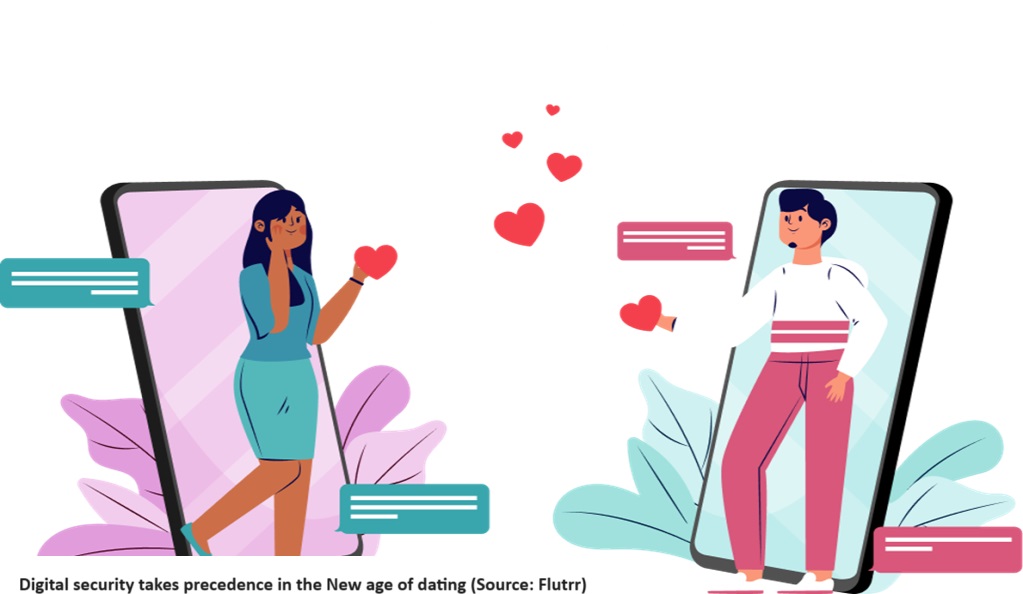

The digital dating landscape has revolutionized the way individuals seek love and companionship, but it has also highlighted the need for enhanced measures to protect user safety and security. Strategies such as stringent verification processes, transparent privacy policies, accessible reporting mechanisms, continuous monitoring and moderation, user education campaigns, collaboration with law enforcement agencies, robust data encryption, regular security audits, granular privacy settings, and promoting ethical and respectful behavior can foster a safer and more trustworthy digital dating environment. These strategies require continuous vigilance, adaptation, and collaboration to address emerging threats.
Digital dating platforms have become increasingly popular, offering individuals the opportunity to connect with potential partners from the comfort of their own homes. However, this convenience also comes with risks, as users may encounter fake profiles, catfishing, harassment, and even financial scams. To address these concerns, dating platforms must implement stringent verification processes to ensure that users are who they claim to be. This can include verifying identities through email or phone number verification, as well as implementing photo verification processes to confirm the authenticity of profile pictures [21264d1f].
Transparency is another crucial aspect of user protection in the digital dating environment. Platforms should have clear and easily accessible privacy policies that outline how user data is collected, stored, and shared. Users should have control over their data and be able to make informed decisions about what information they share with others. Additionally, platforms should provide accessible reporting mechanisms for users to report any abusive or inappropriate behavior they encounter [21264d1f].
Continuous monitoring and moderation are essential to maintaining a safe and respectful digital dating environment. Dating platforms should have dedicated teams that monitor user activity and respond promptly to reports of harassment or other violations. This can help prevent abusive behavior and create a more positive user experience. User education campaigns can also play a role in promoting safe and responsible online dating practices. Platforms can provide resources and tips on how to identify and avoid scams, protect personal information, and navigate potential risks [21264d1f].
Collaboration with law enforcement agencies is crucial in addressing serious issues such as harassment, stalking, or financial scams. Dating platforms should have protocols in place to assist users in reporting incidents to the appropriate authorities and cooperate fully with any investigations. This collaboration can help ensure that perpetrators are held accountable for their actions and provide support to victims [21264d1f].
Data security is another critical aspect of user protection in the digital dating landscape. Platforms should implement robust data encryption measures to protect user information from unauthorized access or breaches. Regular security audits can help identify vulnerabilities and ensure that appropriate measures are in place to mitigate risks. Additionally, granular privacy settings can give users more control over who can access their profile and personal information [21264d1f].
Promoting ethical and respectful behavior is essential for creating a positive and safe digital dating environment. Platforms should have clear guidelines and policies that prohibit harassment, hate speech, and other forms of abusive behavior. Users should be encouraged to treat others with respect and report any violations they encounter. By fostering a culture of respect and accountability, dating platforms can create a more inclusive and welcoming space for all users [21264d1f].
A recent study conducted by UBC researchers sheds light on the factors shaping users' experiences on Facebook Marketplace, an online trading platform. The study interviewed 42 Facebook Marketplace buyers and sellers in the U.S. and Canada. Concerns for physical and financial safety, as well as well-being, were top of mind among users. Participants hesitated to rate sellers due to safety concerns and the challenge of balancing feedback with anonymity. Users were uncomfortable with the inseparable link between the Marketplace and Facebook, raising privacy concerns. Despite trust concerns, most participants continued to use the Marketplace due to its simplicity and wide audience reach. The researchers proposed enhancing user safety and privacy on the Marketplace, including implementing a profile verification process and offering more transparent communication channels for user feedback [ad2f883b].
In conclusion, the digital dating landscape and online trading platforms like Facebook Marketplace offer exciting opportunities for individuals to connect with potential partners and engage in commerce. However, it is crucial to prioritize user protection and security in these environments. By implementing strategies such as stringent verification processes, transparent privacy policies, accessible reporting mechanisms, continuous monitoring and moderation, user education campaigns, collaboration with law enforcement agencies, robust data encryption, regular security audits, granular privacy settings, and promoting ethical and respectful behavior, these platforms can create a safer and more trustworthy user experience. Continuous vigilance, adaptation, and collaboration are key to addressing emerging threats and ensuring user safety and security [21264d1f] [ad2f883b].